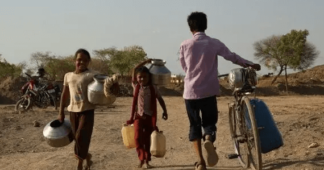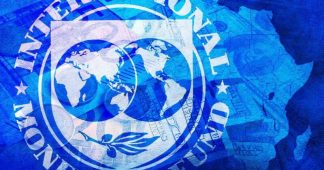Mar 27, 2023
Study carried out by the CADTM, the Left Group in the European Parliament – The Leftwww.left.eu
Executive summary and full version in pdf below.
Africa was not long spared by the Covid-19 pandemic that submerged the world. The new virus first appeared in Africa in mid-February 2020, almost three months after the first case of Covid-19 in China. On 13 April 2020, French president Emmanuel Macron made an announcement that did not cost him anything: he proposed a massive cancellation of African debt to support the continent’s struggle against the virus. A few hours later, the G20 merely offered a suspension of payment for the poorest countries. Yet public debts had sharply increased all over the world.
Today, over a third of the countries of the South are either over-indebted or in default. 60% of African countries spend more on repaying their debts than on health care, thus not meeting local needs. And the war in Ukraine is hitting African countries hard as they face rising commodity prices. Debt is, therefore a hot topic. What is the impact of the Covid-19 pandemic on the indebtedness of southern countries? What is the responsibility of the International Financial Institutions and of countries of the North for this predicament? Can the temporary suspension of repayment that was granted solve the debt issue faced by African countries, which has been further aggravated by the Covid-19 pandemic? Are there no alternatives?
The present study focuses on the development of indebtedness in Africa. But the analysis can easily be extended to other countries of the South. It shows that the coronavirus pandemic and its many consequences aggravated a former situation of indebtedness but was not its cause. The pandemic was the catalyst, though all the ingredients of a new financial crisis have been present for several years, at least since 2017-2018. It highlights the dramatic social and economic consequences of the current health crisis, as well as its huge impact on public finances and indebtedness, both in the North and in the South. Finally, it shows that what the International Financial Institutions (IFI) have contributed are false solutions and that there are alternatives. More fundamentally, it demonstrates that the logic of the capitalist system has to be questioned to get to the roots of African countries’ indebtedness.
Continue reading at www.cadtm.org
We remind our readers that publication of articles on our site does not mean that we agree with what is written. Our policy is to publish anything which we consider of interest, so as to assist our readers in forming their opinions. Sometimes we even publish articles with which we totally disagree, since we believe it is important for our readers to be informed on as wide a spectrum of views as possible.











